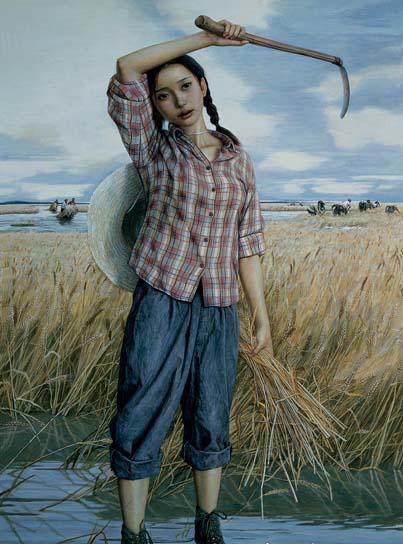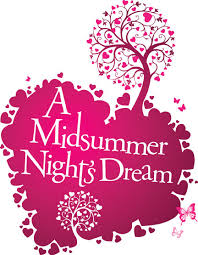Shakespeare’s “Seven Ages of Man” is an analogy of the different phases of life that a man goes through during a lifetime. The use of imagery, metaphor, and simile are the strongest figures of speech used to drive home the passage’s message. He starts by describing the everyday actions and conditions in which we all find ourselves as a baby who is dependent on a mother figure; then he moves on to explain what each stage after that looks and acts like in its own time, thereby making his way to the end of a person’s life. Some examples of figures of speech used include “the whining schoolboy,” then “sighing like a furnace,” “bearded like the pard,” “round belly,” “beard of formal cut,” “and his big manly voice,/ Turning again towards childish treble,” all discuss by simile and metaphor the phases of a man’s life. It ends with the man in a “second” childhood when he is old and loses everything from his teeth, sight, taste, and everything else.
The timeline is organized so the audience can easily follow through with the passage of a man’s life, and he uses the rhythm of iambic pentameter. Still, the structure is not limited to ten syllables of stressed and unstressed accents.
Seven Age of Man Critical Analysis: Poetic Devices
The Poem is composed in free verse. The style is narrative. The Poem describes seven different stages of life with a brief but powerful impact throughout.
Metaphor:
A metaphor is a figure of speech where a comparison of two different things is implied but not clearly stated. Examples of metaphor in the Poem are as follows,-
*All the world’s a stage
*And all men and women are merely players
*seeking the bubble reputation (reputation has been termed as short-lived like a bubble)
The ending of the poem completes the metaphor that life is like a stage, and the man plays seven different roles on this stage, coinciding with phases of his life:
“Last scene of all,
That ends this strange eventful history,
Are second childishness and mere oblivion,
Sans teeth, sans eyes, sans taste, sans everything.”
The last “scene” or “stage” of a man is old age, where he has no teeth, no eyes, no taste, no nothing (excuse the double negative). This is also an example of imagery.
Simile:
A simile is a figure of speech in which two different objects are compared, and the comparison is made clear by using terms like ‘like,’ ‘such as, and so on. Examples of similes in the poem are,
*Sighing like a furnace
*creeping like a snail
Alliteration
Alliteration is the close repetition of the consonant sounds at the beginning of words to facilitate narration. An example of alliteration in the Poem is,
*shrunk shrank
*plays his part
Personification:
“Seeking the bubble reputation
Even in the cannon’s mouth.”
“The cannon” is an object, so obviously, it cannot have a mouth.
Seven Age of Man Critical Analysis: Theme
Jaques’ essential point in his “Seven Ages of Man” speech is necessary to assert that life is somewhat arbitrary. He compares life to a play, with all of humanity participating as its actors. The spaces, too, are rather random. They are essential at the moment they are read or performed, but beyond that moment, they serve no greater purpose. Hence, by likening life to a play, Jaques also says that life has no greater meaning beyond the point that life is performed, showing us his assertion that life is arbitrary. Hence, the central theme found in his speech is the arbitrariness of life. But as he continues to speak, he also relays seven different common stages of life, performed like seven different acts.
Seven Age of Man Critical Analysis: Tone
This narrative poem, a soliloquy in nature, is an extended metaphor. Jaques, the speaker of these lines, has a cynical tone and is often melodramatic. The formula used by Jaques is a major overgeneralization of human life, which is too widely generalized and demonstrably untrue. However, softness and calmness can also be easily deciphered in the speaker’s tone.
Seven Age of Man: Important Questions
- Which of the seven stages described by Shakespeare do you like most and why?.
2. Compare old age with childhood. Also, write about similar traits between these two stages.
3. Do you think that this world is a stage? (It means there is no concept of free will)
4. Do you think that lovers are the same even after passing a few centuries?
5. It seems that Shakespeare is against soldiers. How?
Here is a complete video playlist with a detailed explanation of the Poem:
You can also refer to Seven Age of Man: Summary.
Updated by Anjali Roongta on 13th April 2023.
Some online learning platforms provide certifications, while others are designed to simply grow your skills in your personal and professional life. Including Masterclass and Coursera, here are our recommendations for the best online learning platforms you can sign up for today.
The 7 Best Online Learning Platforms of 2022
- Best Overall: Coursera
- Best for Niche Topics: Udemy
- Best for Creative Fields: Skillshare
- Best for Celebrity Lessons: MasterClass
- Best for STEM: EdX
- Best for Career Building: Udacity
- Best for Data Learning: Pluralsight












